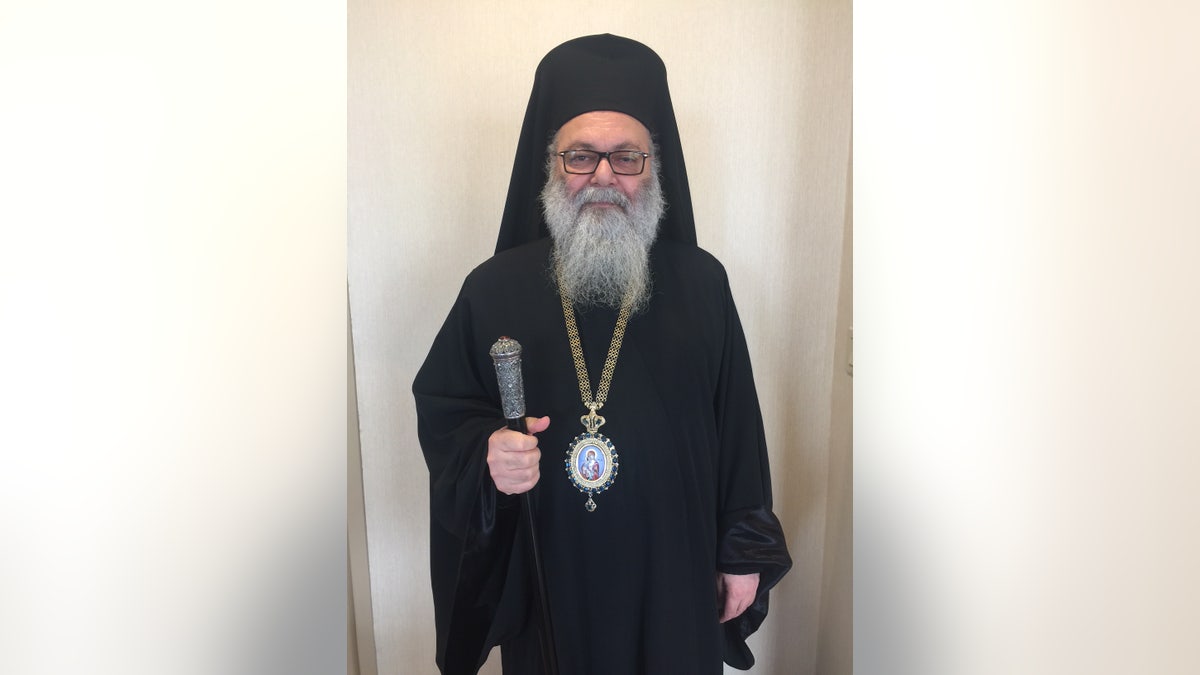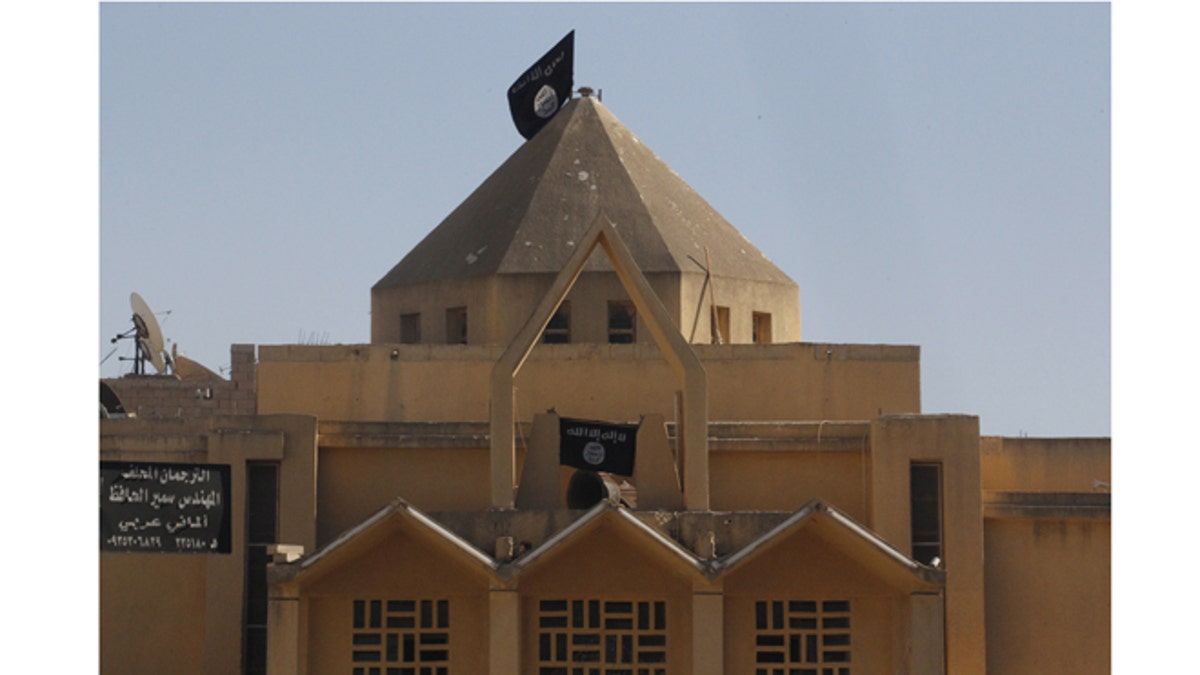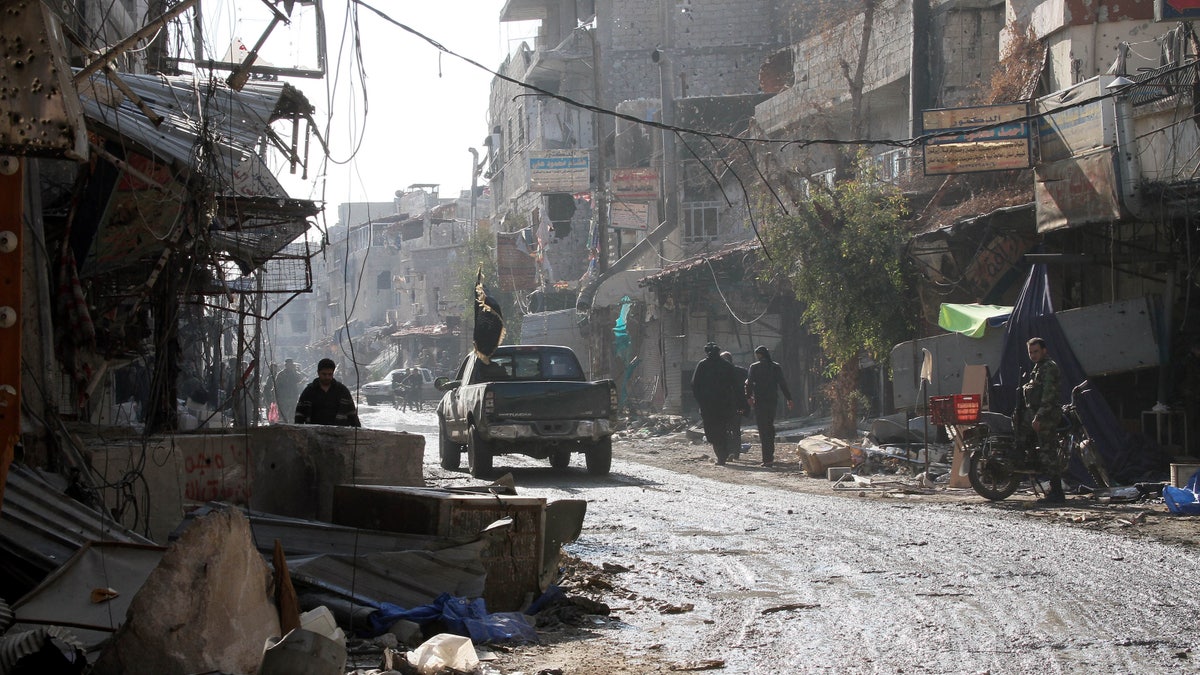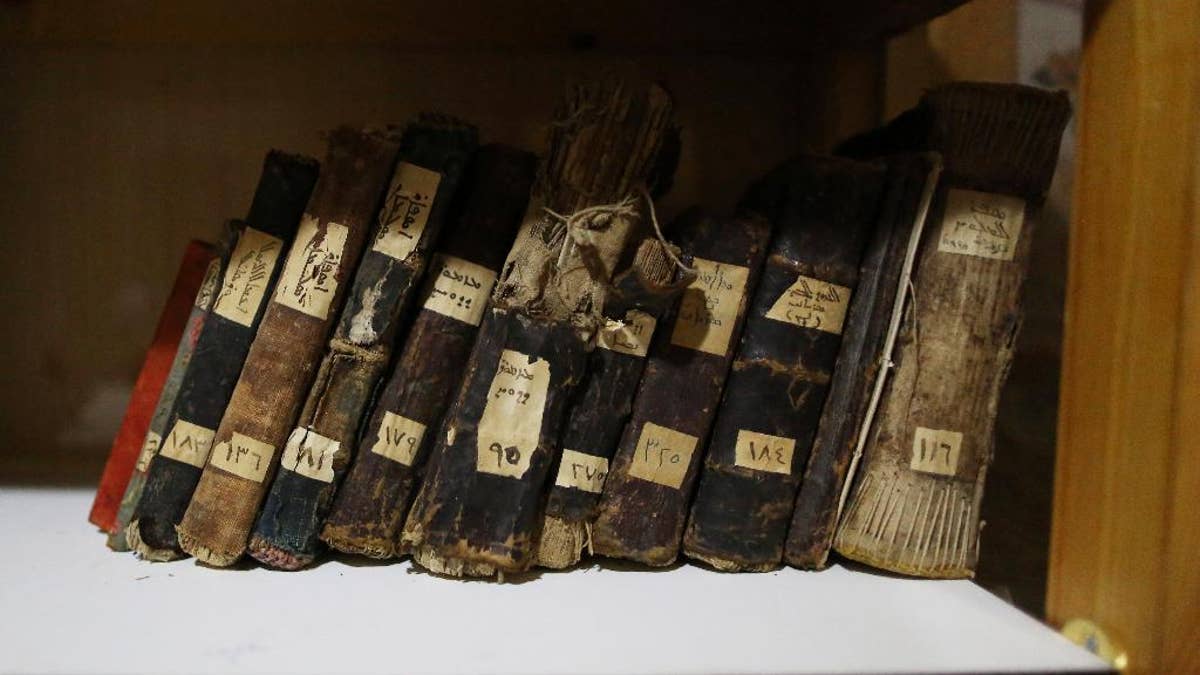
His Beatitude John X, the Damascus-based leader of the Antioch Christian Church (Fox News)
His Beatitude John X, the Damascus-based leader of the Antiochian Orthodox Church, wrapped up his recent visit to the United States with a desperate appeal for American leadership to bring an end to the suffering in Syria, assist in locating the whereabouts of three kidnapped church leaders, and help secure the future of Christianity in the volatile region.
“We thank the position the United States has taken in fighting terrorism. The United States has a basic and important role to play in resolving these issues that we face. The United States is a superpower and has a way to make decisions that is well-recognized, a way to push everybody to find a peaceful solution (through) dialogue,” he told Fox News. “On the other hand, the U.S. can do something tremendous by helping the people of Syria and supporting their everyday needs.”
In particular, he expressed a desire for the U.S. to “lift the sanctions,” which are “directly affecting the people of Syria” — including the minority Christians endeavoring to survive in the land where their religion began.
The Antiochian Orthodox Church, also known as the Greek Orthodox Church of Antioch, counts as many as 1.1 million members in Syria and 400,000 in Lebanon. Additionally, it has about 75,000 members in the U.S., and other members around the world.
Syria has been a designated state sponsor of terrorism since 1979, but additional sanctions have been placed on the country since 2011 as uprisings spawned across the country in the quest to pressure the Assad government to pave the way for political transition. The sanctions prohibit the export of almost all U.S.-origin items, restrict financial services and the import of Syrian oil, and ban new investments in Syria by Americans.

ISIS targeted Christians and Christian buildings when it took over swaths of Syria during the country's war (REUTERS)
“Since the uprisings began in March 2011, the U.S. government has intensely pursued calibrated sanctions to deprive the regime of the resources it needs to continue violence against civilians and to pressure the Syrian regime to allow for a democratic transition as the Syrian people demand,” the State Department noted, adding that in 2013 “significant steps” were taken to ensure civilians did not suffer from the economic blockades.
While there are some exemptions for humanitarian work within the legislation, critics of the international sanctions — which are also imposed by the United Kingdom and the European Union — have lamented that they only have deprived all the nation’s hospitals of lifesaving equipment and medicines, and have done little to diffuse the Assad governance, which has regained control over much of the country.
REBUILDING RAQQA: SHOULD U.S. TAXPAYERS PAY TO REBUILD THE RUINED FORMER ISIS STRONGHOLD?
“On June 12, 2013, through the Departments of State, Commerce, and Treasury, the Administration took several significant steps to ease U.S. economic sanctions, enable additional relief and reconstruction activities in opposition-controlled areas of Syria, and support the Syrian opposition and the people of Syria,” the State Department added.
But even as much of the military operations simmer across Syria, and as the dust settles in the recently liberated Raqqa and its surrounding villages, three prominent kidnapped Christian leaders are still nowhere to be seen or found. Thus, the church leader used his official visit — which included meetings with representatives from Congress and the United Nations — as a rallying cry for help.
“This is a very painful subject on our hearts always. Until the time of their kidnapping until today, nobody has given us any information about their plight, their whereabouts, whether they are alive or dead,” he said. “There is absolute silence internationally and that is unfortunate.”
In April 2013, as Islamic militant groups were rising in the war-engulfed nation, the patriarch’s own brother, the Greek Orthodox Archbishop of Aleppo Paul — Paul Yazigi — was abducted on the outskirts of Aleppo, along with the Syriac Orthodox Bishop of Aleppo, Yohanna Ibrahim, as they returned from carrying out humanitarian work on the Turkish border. Four months later, Italian Jesuit Father Paolo Dall’Oglio too disappeared after entering the ISIS-dominated “caliphate” capital of Raqqa in an effort to negotiate the release of hostages with the militants.
“We still hope there will be a positive conclusion,” the church leader noted. “That they will return to their ministries, to serving their people.”

The more than six-year conflict in Syria has had a devastating impact on people of all faiths (The Associated Press)
The patriarch also called for global assistance in not just supporting Christians and Syrians overall who have fled as refugees, estimated to be at least 2.5 million, but the many more — some 6.5 million — who have been displaced within the war-ravaged country.

Ancient Christian manuscripts located in the Middle East (The Associated Press)
“We (as Christians) don’t have any impressions that we are guests in that part of the world. Christianity started in the Middle East, and so Christians want to remain there — they don’t want to leave their land,” he explained. “The U.S. and the international community has an important role to play to make sure Christians remain in Syria. We want to keep our presence there.”
Founded by Apostles Paul and Barnabas in 42 A.D., with the Apostle Peter appointed as the Church’s very first prelate, the Church of Antioch is one of five Patriarchates of the Christian parish, along with Constantinople, Alexandria, Rome and Jerusalem. It is the considered the largest and most ancient Christian church in the East, and its traditional territory spans from Syria and Lebanon to Iran, Iraq, Kuwait, Turkey and Arab countries of the Persian Gulf.
The Antiochian Patriarchate represents Christian churches in Syria and across the Middle East as well as presiding over some 300,000 East Orthodox Christians in the United States.
The humanitarian arm of the Patriarchate, the Department of Ecumenical Relationships and Development (DERD) operates as the largest local NGO inside Syria, independent of the government. DERD seeks to assist these many millions, and despite being Christian-based, almost 90 percent of those it serves are of the Muslim faith.
“Despite what has taken place,” the patriarch added. “The relationship we have among Christians and Muslims, is in great shape. … Our main target is to help the entire Syrian people. We don’t distinguish between Christians and Muslims — we help all.”




















